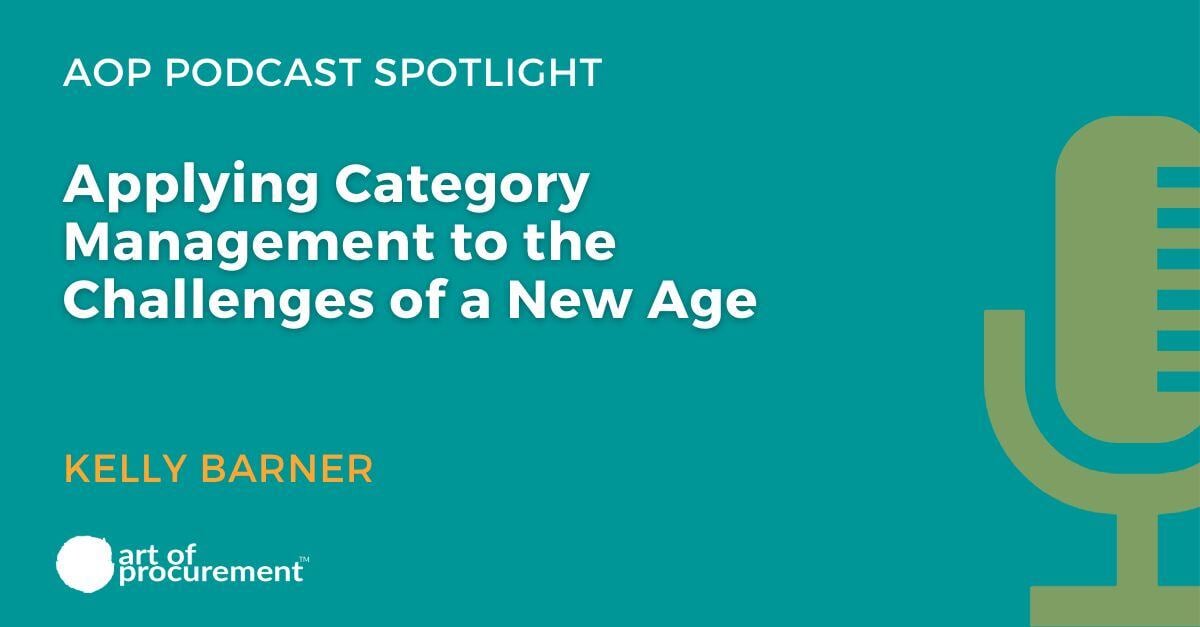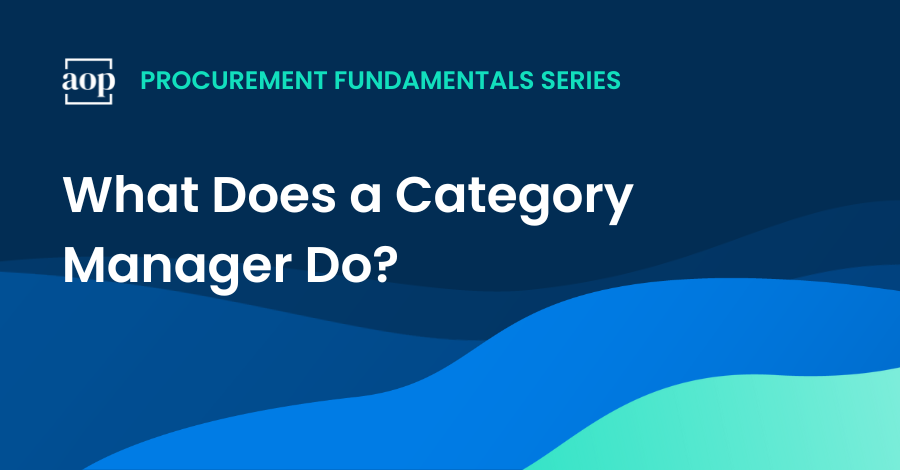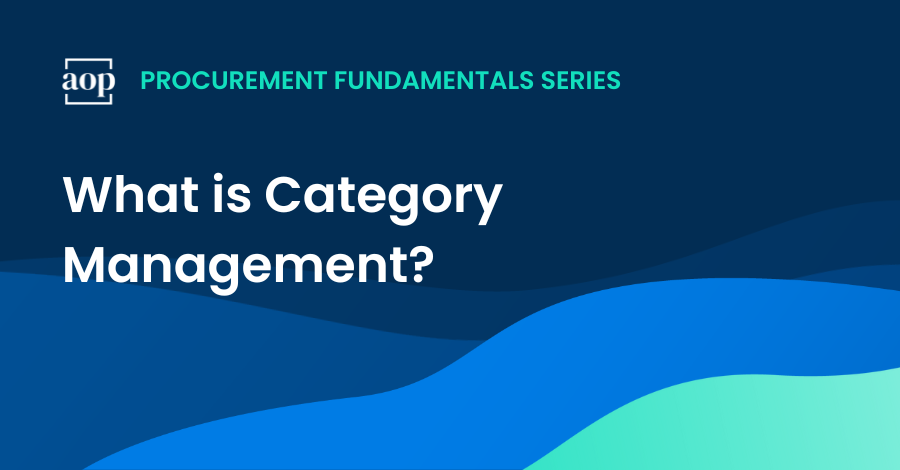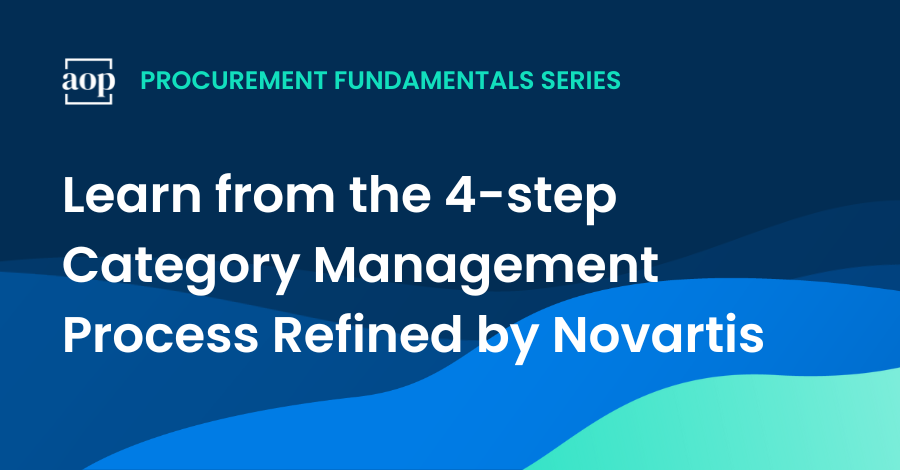2 min read
Applying Category Management to the Challenges of a New Age
Kelly Barner : Updated on December 1, 2024

In this week’s episode of the Art of Procurement podcast, Philip Ideson welcomed the first guest of 2023: Stephane Morel, a Global Process Owner within Strategic Procurement at Novartis. He is responsible for advancing, aligning, alleviating, accelerating, and automating strategic procurement processes and is one of the few procurement professionals who actually chose to work in the field.
Listen to Navigating the Perfect Storm Using Category Management w/ Stephane Morel
During their conversation, Stephane observed three things about category management:
Category management is constantly being criticized.
In many cases, category management frameworks have been poorly applied, resulting in a ‘category management lite’ approach that helps no one. In addition, procurement has struggled to successfully engage the business in category management activities… doing so remains an opportunity going forward.
Category management no longer has the same presence it once did in consulting firm publications.
The vast majority of today’s consultant-created content is focused on procurement tech. Because category management is primarily thought of as a process rather than a platform, it is simply not getting the attention that other topics are – yet another opportunity.
Supplier relationship management (SRM) seems to be filling the spot that category management once occupied.
The last few years of uncertainty have led many procurement teams to emphasize supplier relationships – and that is not a bad thing. But procurement should be pursuing category management as well, even if category strategies have to be continually revisited due to changing conditions.
The Category Management Flywheel
Successful category management should drive a cycle of continuous improvement, with the business involved at every stage of planning. If procurement develops a category strategy in isolation, the business may respond by saying, “That’s nice, but I don’t need this.” Procurement can easily fall into the trap of pulling together a wonderful strategy that just isn’t aligned with the needs of the business.
While most procurement professionals talk about category management processes, they may mean different things. It is important to align on the meaning within procurement and then to convey a unified message to the business. The definition procurement selects should make clear how they intend to execute category strategies.
Possible Definition 1: Category Management ‘Lite’ – This program covers many categories and subcategories of spend. Some will inevitably receive more in depth treatment than others.
Possible Definition 2: Selectively Applied Category Management – Procurement focuses on a few highly impactful categories of spend and deeply invests in and commits to each one.
Most procurement teams today are working under the first definition of category management, whether they do so intentionally or not. They have limited resources to dedicate, so by applying category management lite they also limit the returns that the program brings.
The second option requires more discretion on procurement’s part up front, but it ultimately leads to better results and a greater impact at the category level. As more buying responsibility is devolved back into the business, category management will also remain aligned with procurement’s approach to spend management.
Digital Category Management
Although category management is not as large of a subset of procurement tech as analytics or supplier management, there are options available. Digitizing category management is ultimately a data quality and availability challenge that procurement must overcome.
Procurement needs to create a single source of truth where category managers can connect, capture their insights, and collaborate with the business. Over time, this single source can both connect with other procurement solutions and processes and also leverage the emerging benefits of AI and automation.
The role of the category manager requires an ability to read the nuance of each situation as market conditions change, but it may not mean that subject matter expertise resides within procurement. If the expertise is already present in the business, procurement can focus on connecting the dots and developing a category strategy that meets overall business objectives.
#TakeAction Advice
- With so much complexity, procurement should return to what they know best: proven fundamentals.
- Invest in talent; re-train and retain the people the company needs working in procurement.
- Revisit the procurement operating model so that guiding principles match stated objectives.
- Think carefully about who is ready to implement category management and when in the team’s maturity journey this is attempted.
For more procurement thought leadership, subscribe to the Art of Procurement podcast!




